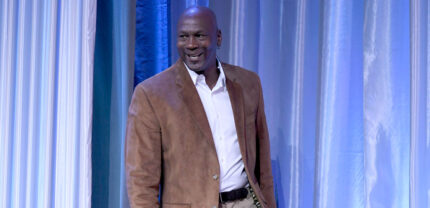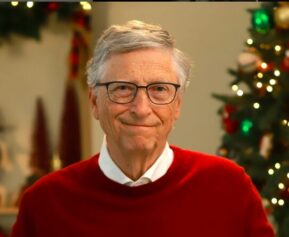By Charlie Wells and Claire Ballentine
Savvy undergraduates know the path to a career on Wall Street: Lock down summer internships by sophomore year — maybe junior at the latest — for a top firm to even consider an offer after graduation. Then contend with years of long nights, countless PowerPoint presentations, Excel jockeying and junior vice presidents with a tendency to say things like, “Don’t think, just do.”

Crypto is turning that track askew. The space is luring away strivers from conventional finance — and successful candidates need to play by an entirely different rulebook.
Here, it’s not about the right contacts, a polished resume, a standout LinkedIn profile or even a portfolio of work. What can count even more in the eyes of a hiring manager are projects that are run by an online community and can usually be done from anywhere with an internet connection: Working for a DAO.
DAO stands for “decentralized autonomous organization.” It calls to mind the Dao of the ancient Chinese religion organized around it, in which it means “the path.” The Dao is the source of all things. Living in harmony with it leads to happiness and success. For now, at least, the story is similar with DAOs in the crypto job market.
“I would describe it as akin to an internship — maybe instead of a summer internship you’re working for a DAO,” said Tyler Wellener, a partner at BlockVenture Coalition, which helps college students land jobs at crypto firms. The group — which has worked with clubs at Carnegie Mellon, MIT, Berkeley and the University of Michigan — also is using a DAO called API3 to give students crypto work experience before graduating.
A DAO essentially works as a governance and crowdfunding entity over a blockchain. They’re designed not to have traditional hierarchies, and operate as if a shareholder board were to meet Reddit. Aspiring workers might claim “bounties” to complete ad hoc tasks ranging from coding to marketing, or pitch their own ideas that are then voted on by thousands of members of an online community. There is a price to entry: DAOs often require voters to buy tokens — effectively cryptocurrencies for the organization.
Theoretically, anyone who wants to work on a project can volunteer. DAO workers say it’s reputation and proof of past work that get you picked for projects and then paid. Compensation typically happens using some mix of the DAO’s token and cash.
They are “very meritocratic, and there’s not a crazy job application,” said Dan Hepworth, a 21-year-old recent grad who works with friends on a DAO. “Too many people go into finance and banking and aren’t really adding value, when you can add value by creating something new.”
Hepworth’s resume includes everything a Wall Street firm would look for in a candidate: Duke University degrees in computer science and finance, a summer banking internship, an analyst role in a student investment society, even stints as a delivery person for DoorDash and Postmates. He’s also an Eagle Scout.
But instead of heading to a big bank, Hepworth took a job at a software company, where he describes his role as “building cool crypto stuff.” His side gig with the DAO involves creating smart contracts — programs stored on the blockchain — and testing them. He’s paid in crypto but views the labor as a way to hone his skills, and perhaps more importantly, boost his credentials for his broader career.
The potential for job growth is huge. The number of crypto jobs increased 395% between 2020 and 2021, according to data from LinkedIn. While the share is still small relative to total finance and tech positions, those industries had a slower pace of growth, at 100% and 98%, respectively.
Crypto jobs may not immediately come with the financial rewards of banking, especially as large Wall Street firms jockey for junior talent and boost compensation for young staff. DAO workers are often paid in less well-known tokens tied to their projects, and such payments can be highly volatile.
At the same time, the crypto world is filled with overnight millionaires, and although many coins are down this year, Bitcoin is still up more than 450% since the beginning of 2020.
Part of the appeal of DAOs is the simplicity. “You only really need a connection to the internet and an ability to connect to the blockchain to participate and make money,” said Ali Yahya, general partner at Andreessen Horowitz and an expert in DAOs.
Jacob Blish, who leads business development at a DAO called Lido, worked at JPMorgan Chase & Co. for two years before being lured into the crypto fray. He was the first full-time worker for Lido and is now trying to expand the team.
“For the people I’m hiring, I don’t really care about their background,” he said. “The industry is growing so fast, I need people who are fast learners. If you’re 42 or 22 and you went to Harvard or didn’t go to college at all, it doesn’t matter.”
There are risks for making the leap into a nascent and entirely unregulated space. A DAO could run out of funding and then leave members without any income. The value of the token in the project could fall to zero. And taxes complicate compensation in cryptocurrency.
Arden Goldstein faced something of a learning curve in her role as head of marketing at Dash Core Group, an organization funded by the Dash DAO. Her boss is the company’s chief executive, Ryan Taylor. But she also answers to members of the DAO.
“Ryan’s my boss, but then there’s thousands of other people who are intimately concerned about how I spend my time each day and you know, and what my salary is,” she said.
Sometimes hearing scores of different ideas for her marketing projects can be challenging, particularly when a decision needs to be made. Still, she says, “the best ideas come from when there’s a lot of people with their opinions and you can kind of glean what’s best from them.”
Some people can use DAOs as an opportunity to completely change directions professionally. Chris Cameron, 37, spent most of his career working as an archaeologist, helping companies ensure they weren’t building on protected grounds.
Curiosity led him last year to MakerDAO, one of the largest, which focuses on decentralized finance. Before long, Cameron says he was conducting outreach events for Maker with policymakers and academics, explaining the project to figures such as a St. Louis Fed official and a congressman on the House Financial Services Committee. That ultimately led him to a full-time job as a government liaison with crypto firm GFX Labs.
He says he wouldn’t have got the job without the skills — and reputation — he developed on the DAO.
“Literally anybody can walk in — nobody checks for your credentials or anything” he said. “You kind of prove it, prove yourself by doing.”
More stories like this are available on bloomberg.com.




